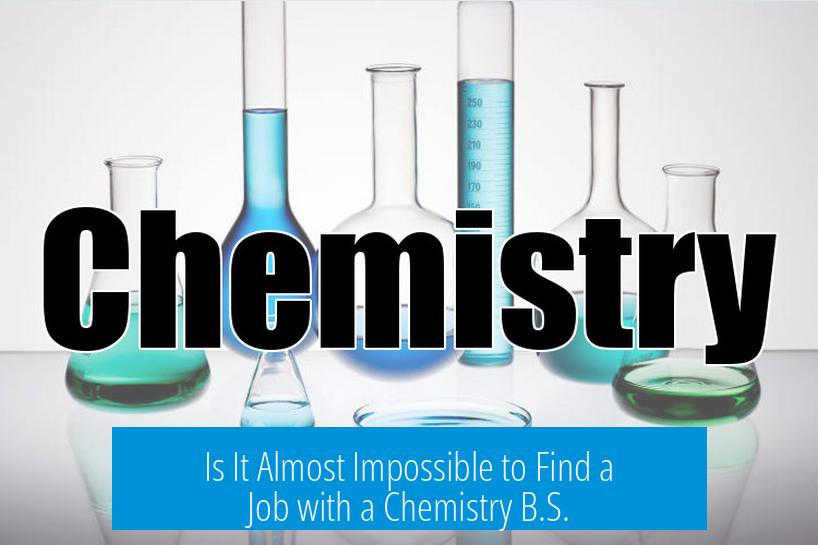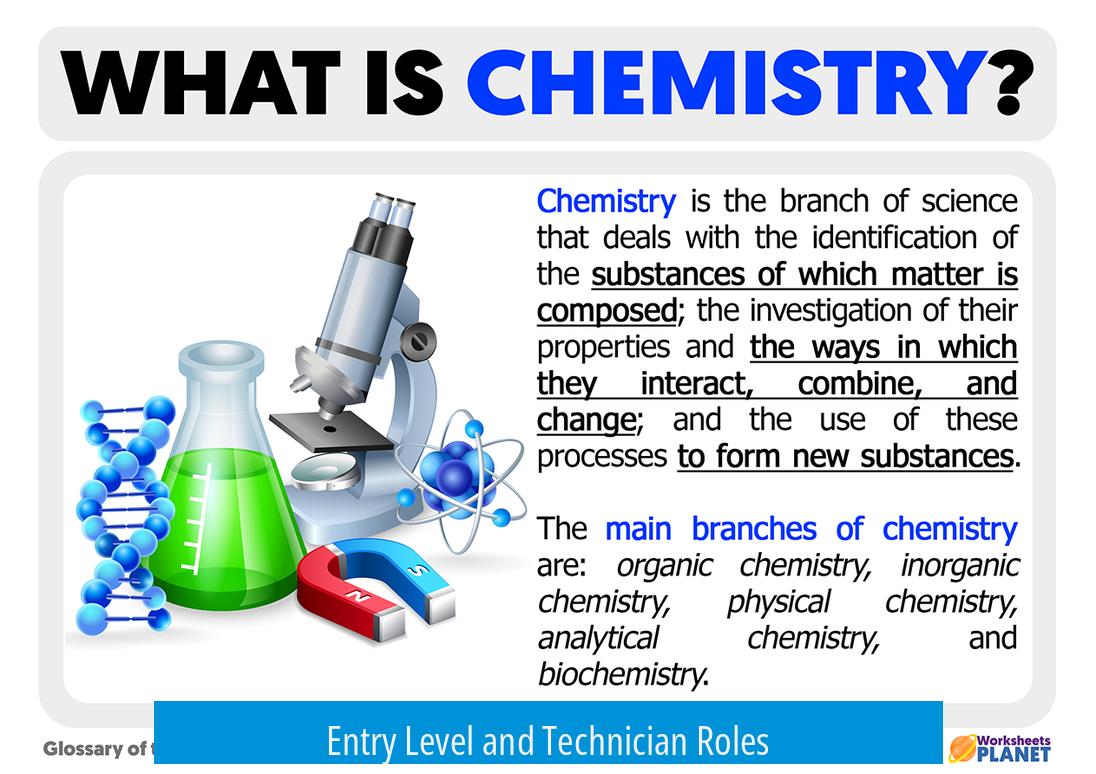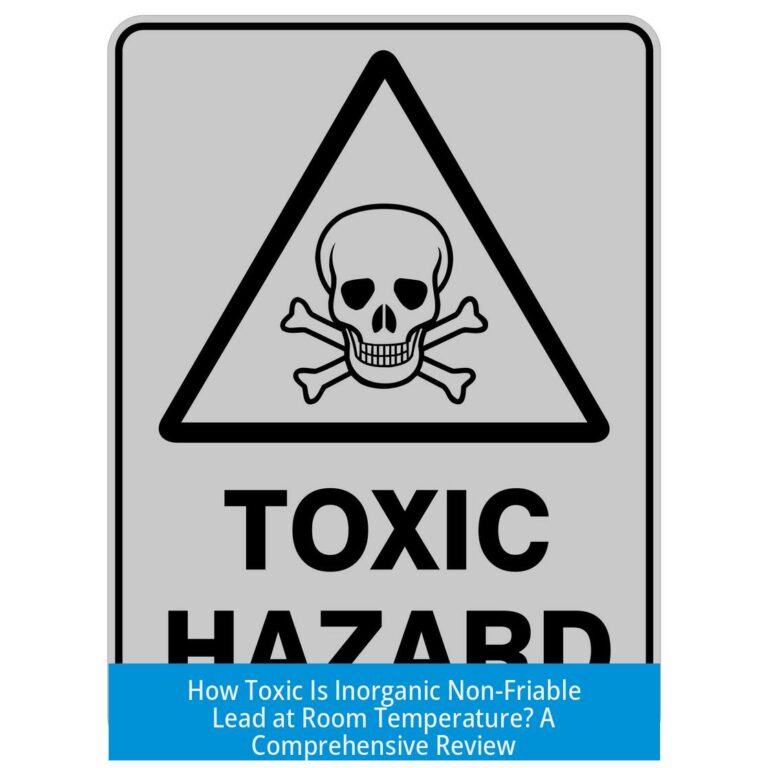Is It Almost Impossible to Find a Job with a Chemistry B.S.?

Finding a job with a Bachelor’s degree in Chemistry can be extremely challenging but not impossible. The field is highly competitive and often saturated, especially in the US. Employers typically prefer candidates with advanced degrees such as a Master’s or PhD, limiting opportunities for B.S. holders. However, understanding the job market, targeting the right roles, and refining applications can improve job prospects significantly.
Job Market Reality for Chemistry B.S. Graduates
The chemistry job market is crowded. Many candidates with advanced degrees compete for roles traditionally open to those with lower qualifications. A Bachelor’s degree alone might not meet minimum requirements for many scientific roles.
- Competition is fierce; even PhD holders face difficulty securing entry-level positions.
- Positions specifically designed for B.S. graduates are scarce and typically involve routine lab work.
- Some employers filter heavily, preferring Master’s or Doctorate degree holders.
Available Positions and Their Challenges
Common job roles for chemistry graduates with a B.S. include quality control technician, lab assistant, or analytical technician. These roles mainly involve routine tasks such as sample analysis, equipment maintenance, and data recording.
Entry Level and Technician Roles

- Quality Control (QC) laboratories hire many B.S. graduates, although the work often lacks intellectual challenge.
- Analytical chemistry roles, including HPLC and spectrometry tasks, remain in demand.
- Positions in water treatment, building materials, or manufacturing provide alternative career paths but usually offer limited advancement.
Limitations in Career Growth
Advancement potential is typically low for those with only a Bachelor’s degree. Pay often lags behind graduates from other disciplines like business administration.
Industry Options
- Manufacturing companies looking for process engineers or R&D aides.
- Coatings, adhesives, and elastomer industries offer niche chemistry roles.
- Scientific sales, patent development, or technical writing leverage chemistry knowledge without requiring advanced lab skills.
Job Application Strategy
A strong, targeted resume is crucial in a competitive job market. Candidates must tailor their CV and cover letters to fit the job description, emphasizing relevant skills and keywords.
- Include technical skills such as HPLC, Microsoft Excel, or fermentation bioreactor operation.
- Resume reviewers recommend limiting generic language to stand out in a brief screening.
- Networking plays a vital role; referrals often lead to the best job opportunities.
Job seekers should send frequent applications, aiming for dozens to hundreds if necessary. Persistence increases chances, despite low response rates typical in this sector.
Geographic and Institutional Factors
Where you live significantly affects job opportunities. The U.S. market is crowded, while some European countries demand advanced degrees for any practical chemistry work.
- Major employers include pharmaceutical companies (Merck, J&J, Teva), chemical manufacturers, and government labs.
- Military laboratories often recruit chemists, but positions are mostly accessed through networking.
Graduate Education Enhances Prospects
Advanced degrees unlock better job offers and roles. Master’s degrees can raise candidates to a competitive minimum, while PhDs are often the standard in research and specialized fields.
- Computational chemistry and data-intensive roles typically require PhD-level education.
- Graduate school allows narrowing focus to in-demand specializations that improve employability.
Advice and Encouragement from Experience
While the path is difficult, successful job placements happen. Individuals often find their first roles through connections and then steadily advance their careers with experience.
- Mentorship and resume reviews improve application quality.
- Early industry experience is key to long-term success.
- A chemistry degree serves as a springboard to related fields such as patent law, regulatory affairs, or scientific communications.
Summary: Key Takeaways
- The chemistry job market is oversupplied, particularly for Bachelor-level graduates.
- Entry-level roles exist but often involve repetitive lab work with limited progression.
- Advanced degrees significantly increase job opportunities and salary potential.
- Networking and tailored resumes are crucial for landing interviews.
- Geographic location and industry choice impact available positions.
- Persistence and skill development help overcome initial barriers.
Why is it so hard to find a job with just a chemistry B.S.?
The chemistry job market is crowded, even those with higher degrees face strong competition. Many roles require a master’s or PhD, pushing B.S. holders to lower-tier or technician jobs. Employers often prioritize advanced qualifications.
What types of jobs can a chemistry bachelor’s graduate realistically get?
Entry-level roles include lab technician, quality control, or analytical chemistry support. These jobs often focus on routine tasks rather than research and may have limited advancement opportunities and pay.
How can I improve my chances of getting hired with a B.S. in chemistry?
Networking is key; many jobs come through contacts. Tailor your resume with keywords from job posts and highlight practical skills like HPLC or fermentation bioreactors. Persistence and applying widely help.
Are there alternative fields a chemistry graduate can explore?
Yes. Consider manufacturing, water treatment, chemical sales, technical writing, or science-related business roles. These areas often value chemistry knowledge but may require additional skills.
Is pursuing a graduate degree necessary to find a good chemistry job?
Many higher-level positions prefer master’s or PhD degrees. A master’s can improve job prospects, but top research jobs usually require a PhD. Early entry into graduate programs can be beneficial.





Leave a Comment